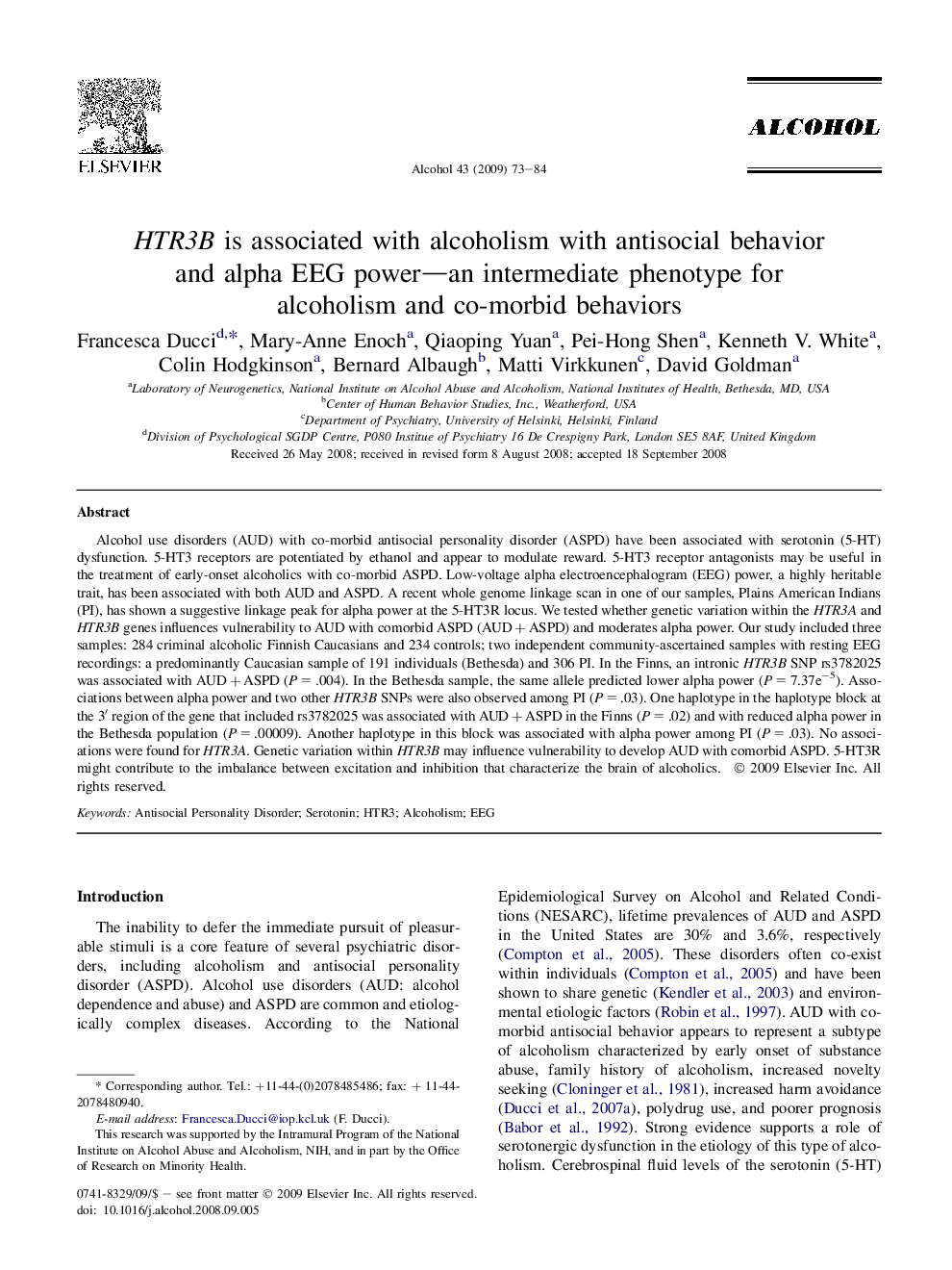| Article ID | Journal | Published Year | Pages | File Type |
|---|---|---|---|---|
| 1067769 | Alcohol | 2009 | 12 Pages |
Alcohol use disorders (AUD) with co-morbid antisocial personality disorder (ASPD) have been associated with serotonin (5-HT) dysfunction. 5-HT3 receptors are potentiated by ethanol and appear to modulate reward. 5-HT3 receptor antagonists may be useful in the treatment of early-onset alcoholics with co-morbid ASPD. Low-voltage alpha electroencephalogram (EEG) power, a highly heritable trait, has been associated with both AUD and ASPD. A recent whole genome linkage scan in one of our samples, Plains American Indians (PI), has shown a suggestive linkage peak for alpha power at the 5-HT3R locus. We tested whether genetic variation within the HTR3A and HTR3B genes influences vulnerability to AUD with comorbid ASPD (AUD + ASPD) and moderates alpha power. Our study included three samples: 284 criminal alcoholic Finnish Caucasians and 234 controls; two independent community-ascertained samples with resting EEG recordings: a predominantly Caucasian sample of 191 individuals (Bethesda) and 306 PI. In the Finns, an intronic HTR3B SNP rs3782025 was associated with AUD + ASPD (P = .004). In the Bethesda sample, the same allele predicted lower alpha power (P = 7.37e−5). Associations between alpha power and two other HTR3B SNPs were also observed among PI (P = .03). One haplotype in the haplotype block at the 3′ region of the gene that included rs3782025 was associated with AUD + ASPD in the Finns (P = .02) and with reduced alpha power in the Bethesda population (P = .00009). Another haplotype in this block was associated with alpha power among PI (P = .03). No associations were found for HTR3A. Genetic variation within HTR3B may influence vulnerability to develop AUD with comorbid ASPD. 5-HT3R might contribute to the imbalance between excitation and inhibition that characterize the brain of alcoholics.
